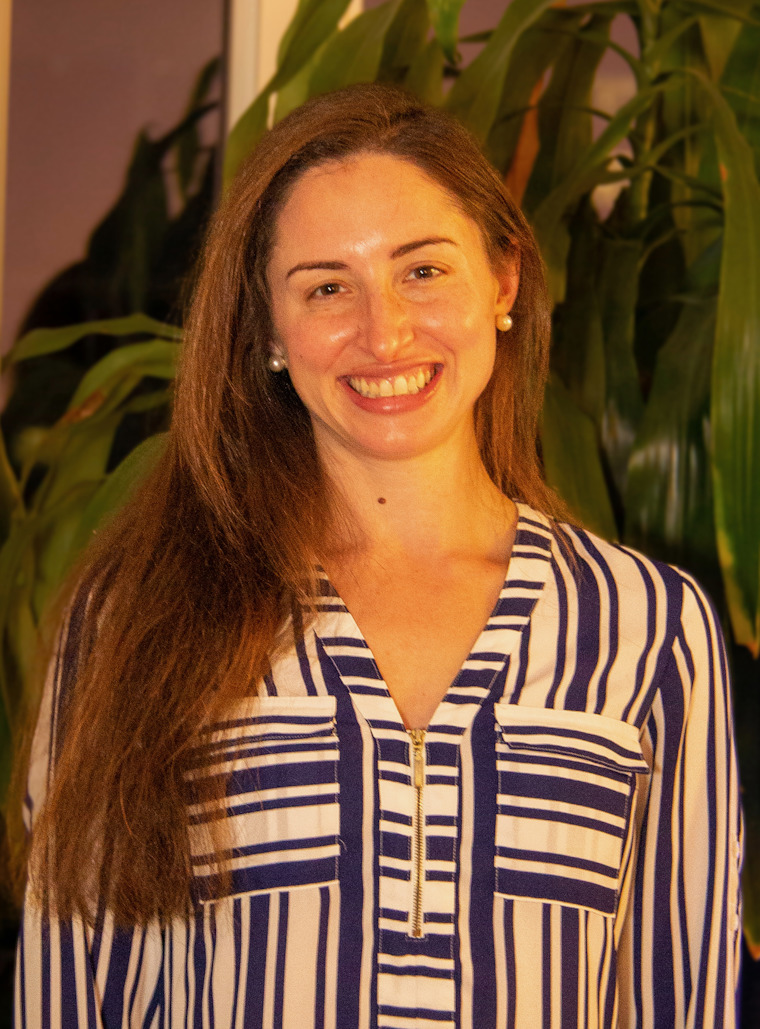
This interview is one in a series of interviews with recipients of the 2025 ACGME Awards. The awardees join an outstanding group of previous honorees whose work and contributions to graduate medical education (GME) represent the best in the field. They will be honored at the ACGME Annual Educational Conference, taking place February 20-22, 2025, in Nashville, Tennessee. As part of its Awards program, the ACGME also jointly presents the Jeremiah A. Barondess Fellowship in the Clinical Transaction each year in collaboration with the New York Academy of Medicine (NYAM).
2025-2027 Barondess Fellow Jessica Lichter, MD is an assistant professor and academic hospitalist at Elmhurst Hospital, part of the New York City Health + Hospitals public hospital system located in the Borough of Queens, an affiliate of the Icahn School of Medicine at Mount Sinai.
ACGME: Why did you want to become a physician?
Dr. Lichter: During high school and college, I developed a deep fascination with science and the unsolved mysteries of the human body, as well as a love for journalism and investigative reporting. After initially pursuing a career in neuroscience research, I found myself longing for a more direct way to connect with people and apply science to help improve their lives. Medicine appeared the perfect way to merge my interests: combining analytical problem solving with the human connection I so valued from my journalism experiences. Now, every day, I get to fuse my passions for science and storytelling to help patients in a meaningful way.
ACGME: What has been the most rewarding part of your medical education?
Lichter: Real-world clinical medicine is messy and complex. Even when patients come in with common diagnoses, they will have distinct backstories, values, and constraints, so the way you understand and help them is unique. This means I am always learning, not just from colleagues but also from patients, residents, and medical students. The ability to constantly learn, adapt, and apply knowledge in ways that directly impacts people is especially rewarding.
ACGME: What has been the most challenging?
Lichter: Residency was by far the most challenging part of my medical education. I found the nature of the schedule to be all-consuming and had trouble adjusting to the 27-hour calls and long night shifts. It was hard for me to have much of a life outside of the hospital. Luckily, as an attending, this is no longer the case, and I now have a much more full and balanced life.
ACGME: What, to you, is the most important or most meaningful part of the clinical transaction?
Lichter: I think what's beautiful about the clinical transaction is how its components—eliciting a comprehensive history, performing a thorough physical exam and engaging in rigorous clinical reasoning—interconnect to create a complete picture of the patient. While the process of forming a diagnosis and treatment plan is sometimes linear, more often it is circular and iterative as new information emerges. At the heart of the clinical transaction is curiosity, not only about disease mechanisms but also about understanding the patient as a whole person. Curiosity is what drives great physicians and keeps us deeply engaged in our work.
ACGME: How will you apply the Fellowship?
Lichter: My current work is focused on harnessing artificial intelligence (AI) to improve physicians’ communication skills, particularly regarding end-of-life care. While simulation with standardized patients and faculty member-led role-play have shown efficacy in this realm, these approaches can be prohibitively costly and logistically hard to implement outside of major academic medical centers, and do not allow for repetitive practice. As a result, many learners working in hospitals throughout the country do not experience the benefits of these simulation interventions, ultimately to the detriment of the vulnerable patient populations they serve. Simulation with AI, by contrast, is cost effective, can be made widely available to as many learners as possible, and allows for indefinite practice. Overall, my goal is to leverage AI to help cultivate more humanistic clinicians and make such a tool accessible to physicians from a variety of backgrounds, ensuring fair benefits for all patient populations. The Barondess Fellowship provides an invaluable opportunity to make such a vision a reality.
ACGME: What does it mean to you to receive this award?
Lichter: The mission of the Barondess Fellowship is to pioneer change in medical education so that it is equipped to handle the intricacies of the modern era without compromising the expert clinical skills central to the practice of medicine. In my current work, I aim to address this balance by harnessing AI to help cultivate more humanistic clinicians. I am therefore truly honored to receive this award. I see it as both an opportunity and responsibility to create an AI that enhances our humanity as physicians rather than strips it away.
ACGME: What advice would you give to other residents/fellows looking to either replicate your work or implement an original idea in their own program or institution?
Lichter: Don’t be discouraged if the first version of your project does not work out; it rarely does. Seek out people from a wide variety of adjacent disciplines, as their insights might help you approach problems in new ways and break through roadblocks.
ACGME: Is there anything else you would like to add?
Lichter: Thank you so much to the New York Academy of Medicine and the ACGME for this incredible opportunity!
Learn more about the Jeremiah A. Barondess Fellowship in the Clinical Transaction and consider applying in the future. The application period for the 2026-2028 award will open in early fall 2025.
